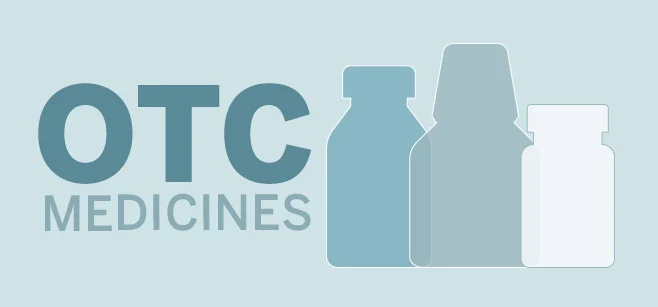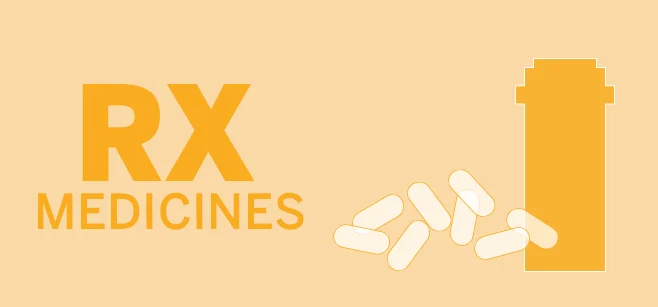OTC NSAIDs include:
Ibuprofen : for example, Advil®, Motrin® IB
Aspirin : for example, Bayer® Extra Strength
Naproxen sodium : for example, Aleve®
How do NSAIDs work?
NSAIDs help relieve pain by blocking pain signals within the central nervous system (brain and spinal cord) and throughout the body. NSAIDs work differently than acetaminophen ( for example, Tylenol®, Excedrin® Tension Headache ), the other main type of oral pain reliever. What is acetaminophen?
What do I need to know about NSAIDs?
Even though they belong to the same category, different OTC NSAIDs have different dosages, directions, and daily limits. It is not safe to apply the dosing directions from one NSAID to another. Download an OTC pain reliever dosing chart for the correct ibuprofen dosage, naproxen sodium dosage, and aspirin dosages.
All NSAIDs can cause stomach bleeding and other side effects, but you can reduce your risks by following the directions and taking the right dose. NSAIDs have additional warnings; read the labels.
More than 900 medicines contain an NSAID, including prescription and OTC medicines such as headache remedies, cold and flu symptom treatments, and sleep aids. Take ONLY 1 medicine that contains an NSAID at a time . Why? Taking more than one NSAID at a time or for longer than directed can increase your risk of stomach bleeding, heart attack, or stroke.

OTC medicine brands that contain an NSAID
(such as ibuprofen, aspirin or naproxen sodium)
Examples
Advil®
Aleve®
Bayer®
Motrin®
Excedrin®
Alka-Seltzer Plus®
Goody’s®

Prescription medicines that contain an NSAID
(brand name and ingredients)
Examples
Vicoprofen® (Hydrocodone/ibuprofen)
Combunox® (Oxycodone/ibuprofen)
Mobic® (Meloxicam)
Naprosyn® (Naproxen)
Anaprox® (Naproxen Sodium)
Celebrex® (Celecoxib)
This is not a complete list of OTC and prescription brands with products that contain an NSAID. Generics and store brands of the listed products may also be available. Check your medicine label. If you are unsure, ask your healthcare professional.
What is ibuprofen?
Ibuprofen is a common pain reliever and fever reducer. It belongs to the group of pain relievers known as NSAIDs (nonsteroidal anti-inflammatory drugs). Some strengths of ibuprofen require a prescription; others are available OTC, for example, Advil® and Motrin® IB .
Important ibuprofen warnings
Ibuprofen has the same risks as other NSAIDs, such as stomach bleeding. Here are some other ibuprofen warnings:
Taking ibuprofen or other non-aspirin NSAIDs (for example, naproxen sodium) increases the risk of heart attack, heart failure, and stroke.
If you take aspirin to help protect against heart attack or stroke , ibuprofen may decrease aspirin’s heart-health benefit. A different OTC pain reliever may be more appropriate. To help find the right choice for you, use the pain reliever comparison chart or talk with your healthcare professional.
For additional ibuprofen warnings and dosing directions, always read and follow the label.
What is aspirin?
Aspirin is a pain reliever and fever reducer. It belongs to the NSAIDs (nonsteroidal anti-inflammatory drugs) family of pain relievers. It is widely available OTC (for example, Bayer® Extra Strength ) and by prescription.
Important aspirin warnings
Aspirin has most of the same risks as other NSAIDs, such as stomach bleeding. Here are some other aspirin warnings:
If you take a prescription medicine for gout, diabetes, or arthritis , talk to your healthcare professional before using OTC aspirin.
If you take aspirin to help protect against heart attack or stroke , ibuprofen may decrease aspirin’s heart-health benefit. If you are considering taking ibuprofen, ask your healthcare professional if another pain reliever may be more appropriate for you.
Do not give aspirin to children or teenagers when they have an illness caused by a virus (such as the flu), because in these cases aspirin can cause a rare but serious illness called Reye Syndrome. (See more from American Academy of Pediatrics)
For additional aspirin warnings and dosing directions, always read and follow the label.
What is naproxen sodium?
Naproxen sodium is a pain reliever and fever reducer; it belongs to the category of pain relievers known as NSAIDs (nonsteroidal anti-inflammatory drugs) . Naproxen sodium is available as an OTC pain reliever (for example, Aleve® ) and by prescription.
Important naproxen sodium warnings
Naproxen sodium has the same risks as other NSAIDs, such as stomach bleeding. Here is another naproxen sodium warning:
Taking naproxen sodium or other non-aspirin NSAIDs (for example, ibuprofen) increases the risk of heart attack, heart failure, and stroke.
For additional naproxen sodium warnings and dosing directions, always read and follow the label.
